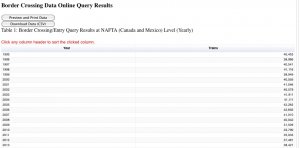Greetings,
I am new to the world of railroading. I read recently that any given railroad's trains will usually or most likely be pulling a majority of their own cars, labeled and scripted with their own name. Example: a BNSF train of mixed freight with a train made up of mixed car types the majority of the cars will be painted with the BNSF logo. A minority of the cars will be non-BNSF cars. This made sense to me. What doesn't make sense to me (and what the article didn't say) is why would any given railroad be pulling a minority of some other railroad's cars in their train in the first place? Why not just have each railroad pulling trains consisting of ONLY cars from their own railroad company? This is something I've often wondered about and just simply don't know the answer to.
Thank you
I am new to the world of railroading. I read recently that any given railroad's trains will usually or most likely be pulling a majority of their own cars, labeled and scripted with their own name. Example: a BNSF train of mixed freight with a train made up of mixed car types the majority of the cars will be painted with the BNSF logo. A minority of the cars will be non-BNSF cars. This made sense to me. What doesn't make sense to me (and what the article didn't say) is why would any given railroad be pulling a minority of some other railroad's cars in their train in the first place? Why not just have each railroad pulling trains consisting of ONLY cars from their own railroad company? This is something I've often wondered about and just simply don't know the answer to.
Thank you


